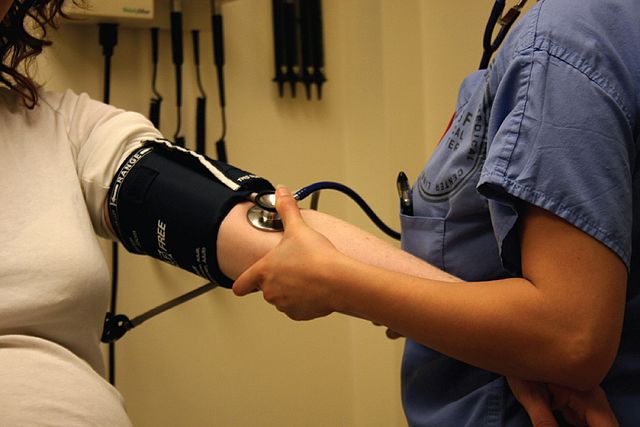What It Takes To Find A Job In Health Care That’s Hands-On

Approaching the field of social and health care, you’ll find that those with the right kind of mindset will succeed no matter what challenges they face. Granted, you have to have an innate sense of wanting to physically help someone get better from an injury or live a better life while suffering from a long term illness. You must have the drive to go the extra mile whenever you’re asked to and ensure you treat patients more than just a job. When it comes to securing your first vital role, or even just finding what you’re good at, you need to do a lot of souls searching and contemplate where you want to be in life.
Many health care jobs require you to be accredited and have modern qualifications before you can move on to the next step. Other jobs in the social care industry, would much rather you have shown a commitment to your job, either through experience or some form of higher education related in some way. In order to get shortlisted for any job, you must also show you have the qualities for what it takes to become a permanent or long term fixture in the roles you’re pursuing.
The complexity of social working
Increasing, researchers and governments have been working together to form a clear and strong desire, to stop issues from spiralling out of control in the populace. Many issues first start in the mind, and thus, mental illness is getting a much-needed makeover with regards to approach.
If you want to be a social worker, you can hoist yourself further up the career ladder, by having a psychology degree of some form, either from college or via an independent company with licensed courses. However, you can also begin by helping your old folks home, as many residents of old age, regularly suffer from mental deterioration. Equally, if you’re doing a course, you can work with your teacher to get a recommendation to help young children in the very early forms of education. Teenagers in high school are some of the worst affected when it comes to mental stress and peer pressure, which can often lead to tragic ends. It’s very likely you can get a supportive role, while also studying.
Social working involves a lot of listening and differs from being a counsellor. You’re essentially, trying to get your patients or recipients of your care, to a furthered stage in their life. You’re tracking their progress in many different areas, such as their mental stability, and how well they do in their life. For teenagers, you’ll be a supportive figure and sometimes be in a position that allows them to trust you more than they do their parents. You’ll be imparting life experience wisdom, such as the trials and tribulations of growing up with bullying, sexual frustrations, self-doubt and enforcing a positive outlook on life.

Image by – OpenStax
Becoming an involved nurse
If you want to professionally enter the industry of health care, and get a job that gives you one of the best hands-on approaches to care, nursing is for you. Becoming a registered nurse is the first form of action you should take. This means you will have to enrol yourself into a course either at a college, a specialist education facility or with an independently licensed company. You may or may not need senior high school qualifications in maths and the basic sciences, it depends on the quality level and length of training you receive.
With this mind, it’s vital you pick a course, which also offers practical modules, that involves training on the job. Theory and exams will be commonplace, and so it’s your job to make sure you study hard and learn from the textbooks you’re given, as well as keep up-to-date with the modern medical industry standards and procedures.
To have a more hands-on approach that would see you involved in a different depth with patient care, you can become a practical nurse. You don’t need to be a registered nurse, to become a practical nurse. However, you will need to take specialized training for this as you’re going to be involved in using equipment that will be administered for long periods of time to the patient. Such schools that offer lpn programs, generally have a duration of just under two years; 18 months or so.
You’ll be supervised by experienced registered nurses that will guide you through the program, to become accustomed to the role. Your job will include looking over the charts regularly to spot signs of change in the patient’s medical charts. Administer common formalities such as checking blood pressure and taking blood samples. You’ll also be a helping hand to the patients when they need catheters and to help them be comfortable in their hospital beds.

Credit – DG EMPL
Supporting disabled children
Many kindergarten schools are more than happy to receive extra help from parents and qualified people to help children with disabilities. Some parents don’t want their disabled children to go to a specialist school that better caters for children in that condition. Thus, many schools and local authorities work together to try and get parents involved in their children’s lives, so their kids don’t fall behind in the curriculum.
If you are a parent or a qualified special needs teaching assistant, you’ll be working with children that have mental and physical issues. When the teacher is giving the lesson, children with diagnosed ADHD and Bipolar conditions, often need someone close to them to help them understand and remain patient. For such children with mental illnesses, the mere act of concentrating for a short period of time can be challenging.
As the special needs teaching assistant, you’ll help them to stay on track, and keep up with the rest of the class. Soon, you’ll build a relationship with them, that may see you becoming their personal teaching assistant, helping them to go through high school and onto college. It’s a daily grind, but incredibly worthwhile to see them succeed and know you had a vital role to play in their achievements.
Whatever kind of hands-on approach you want to take, know that it takes real dedication and the motivation to persevere through daily hardships. Practical nursing is the division of health care where many unsung heroes find fulfillment, but social work and caring for the disabled is just as rewarding.

